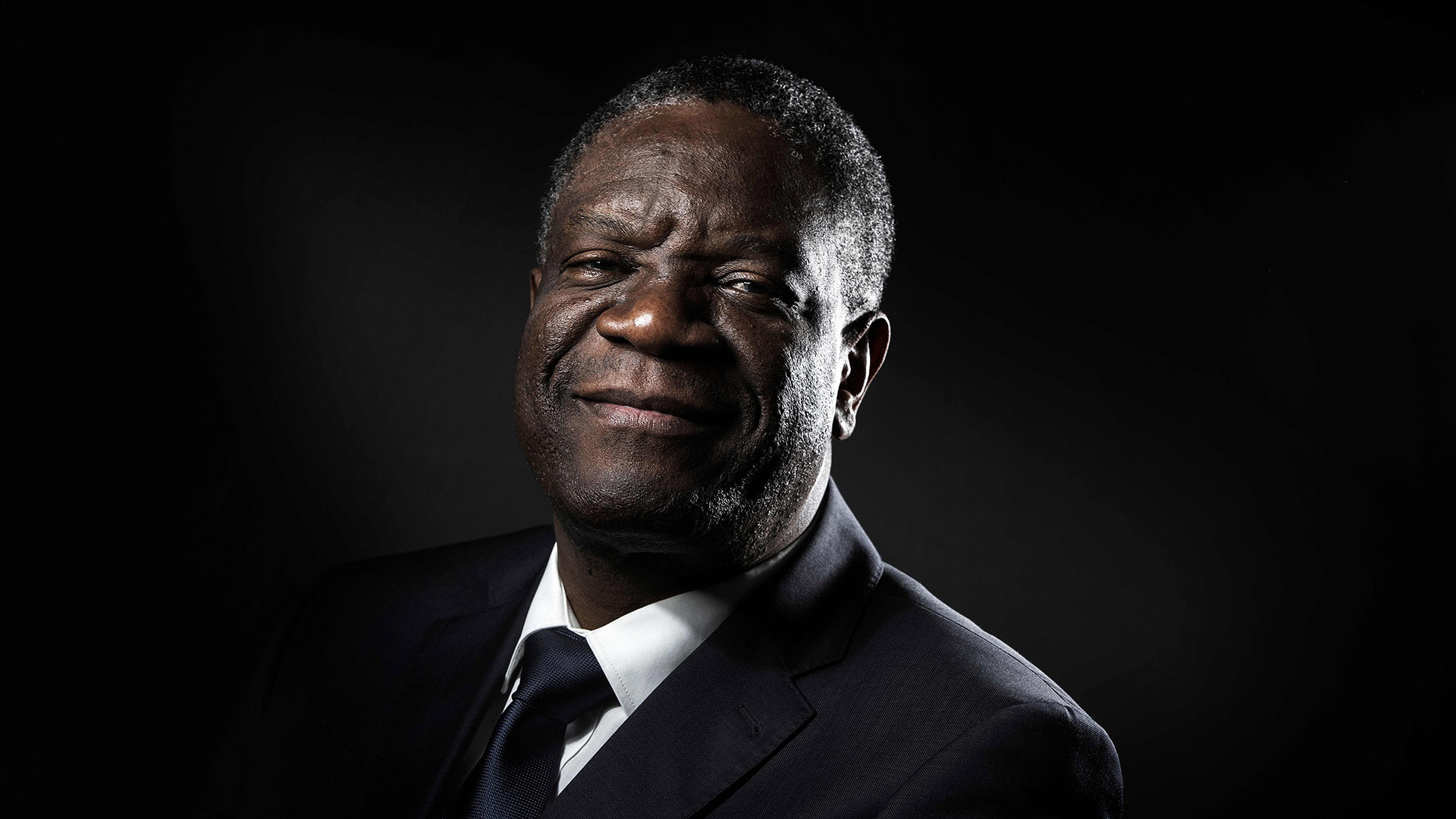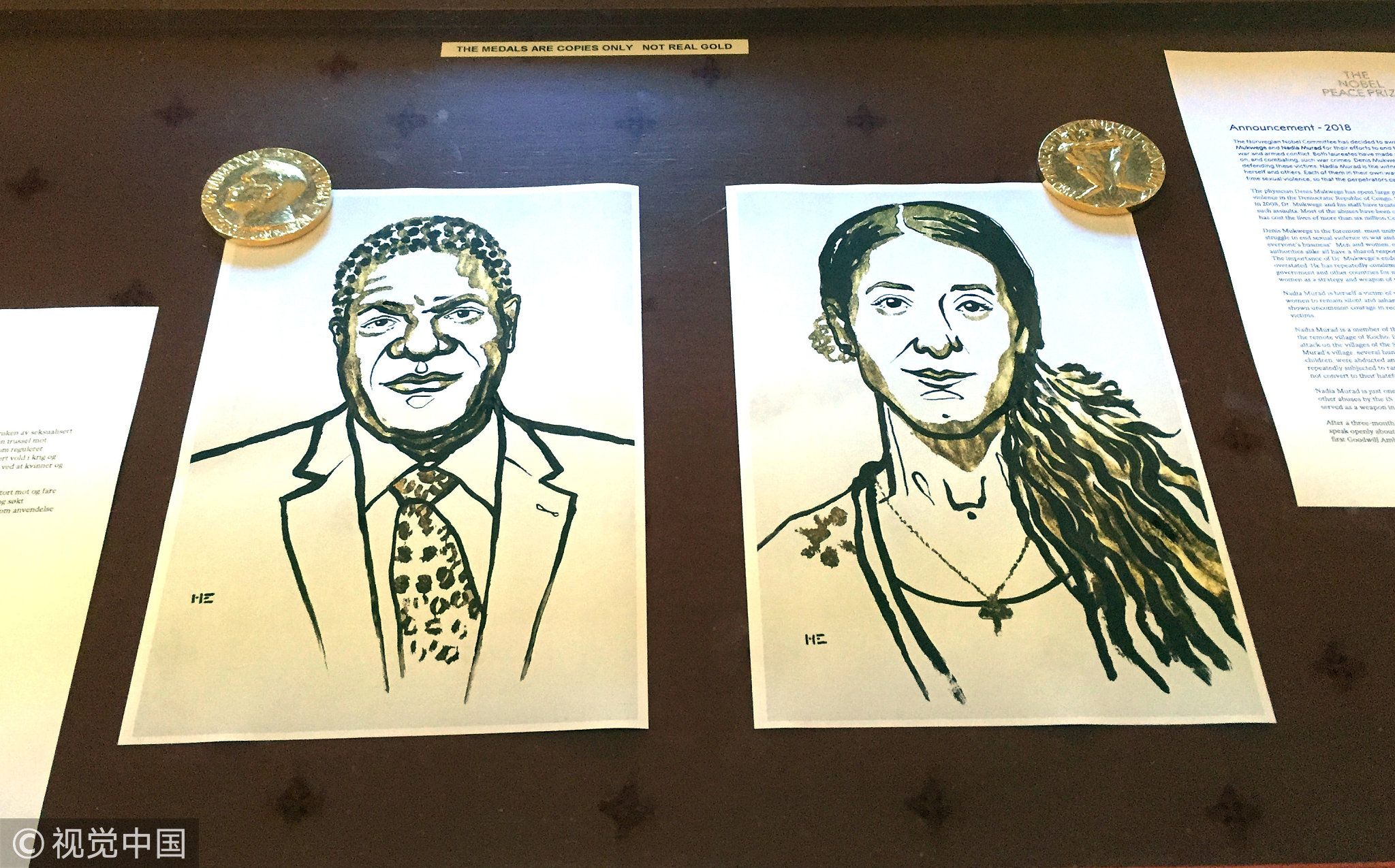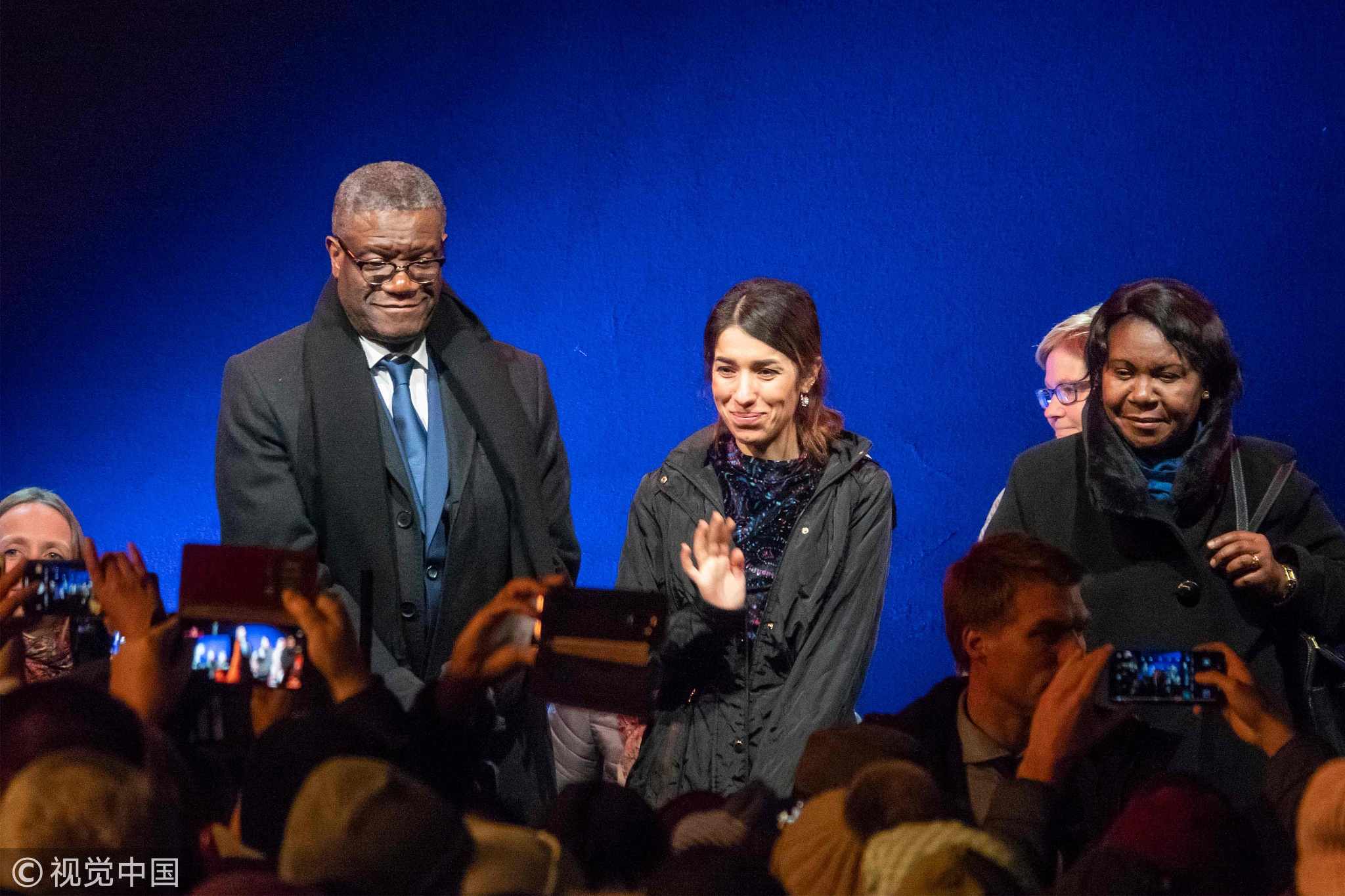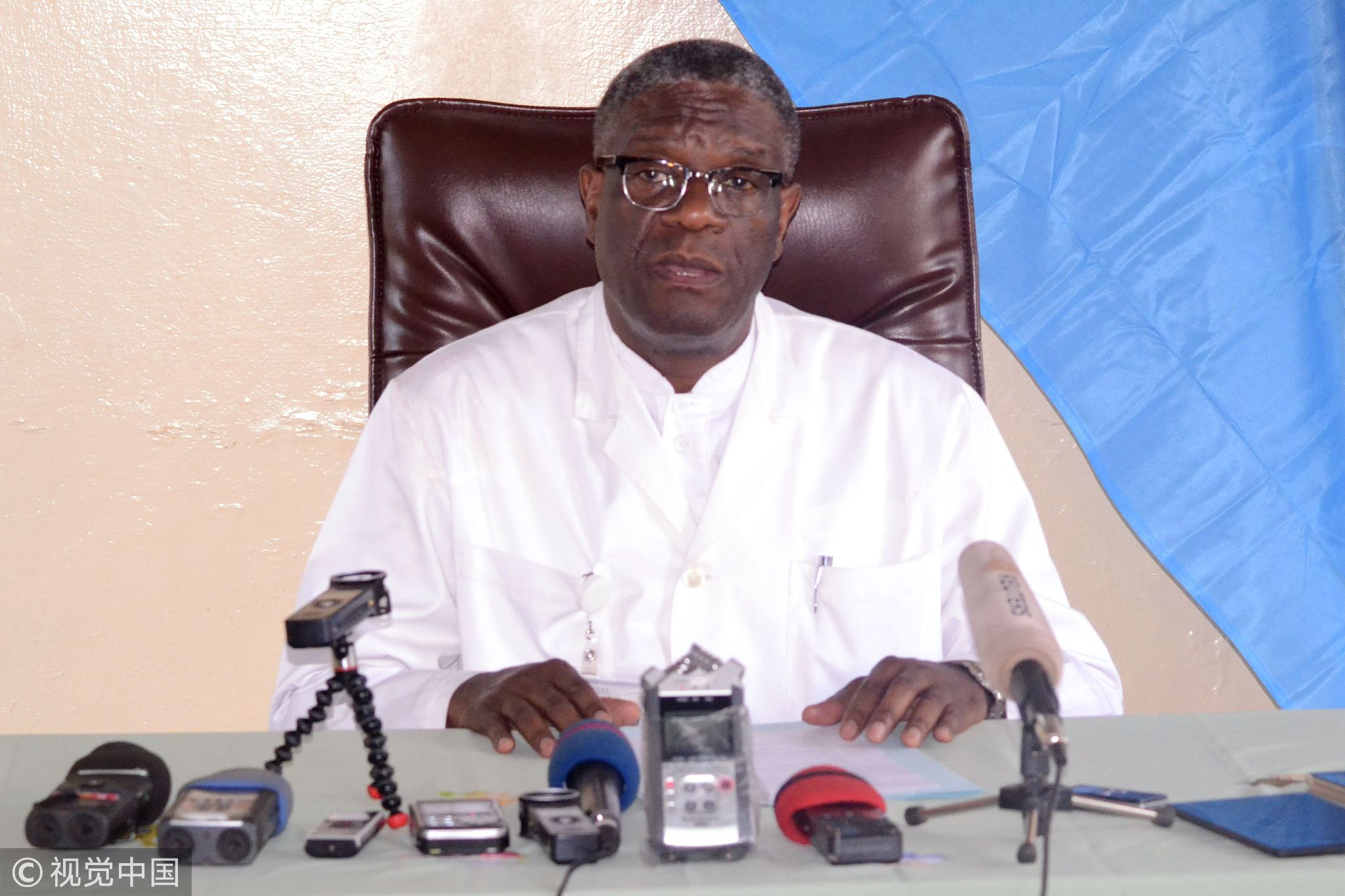
World
10:00, 29-Dec-2018
2018 Beyond the Headlines: Nobel peace laureate endeavors to heal wartime rape victims in DRC
Updated
09:29, 01-Jan-2019
By Asta Tall
05:50

Editor's note: As the year winds down, "The Link" brings you a special series we're calling "2018 - Beyond the Headlines" in which we look at some of the year's biggest stories, which may have been buried a little under reports of trade wars, conflicts, exits, and elections.
This year marked a historic moment for the Democratic Republic of Congo (DRC): Denis Mukwege was awarded the 2018 Nobel Peace Prize. A gynecologist by training, he has been treating victims of wartime rape for nearly 20 years. Here is a look back at his critical work and advocacy against the use of sexual assault as a tool of war.
In 1999, Dr. Denis Mukwege returned to his hometown of Bukavu, the capital city of South Kivu located in the DRC, and founded the Panzi Hospital.
As the country descended into chaos, residents of Bukavu were hit hard by the upsurge of violence. Patients started coming into Dr. Mukwege's hospital, not just with gunshot wounds, but with horrific injuries as a result of systematic rapes carried out by armed fighters.
"All the victims have been raped with unbelievable brutality. Those who manage to survive reach the hospital in a state of incredible physical and psychological destruction. Often they arrive with the genital system destroyed by bullets or sharp objects, an act of savagery unheard before in the history of the region," says Dr. Denis Mukwege.

Drawings of the Nobel Peace Prize winners Denis Mukwege and Nadia Murad are displayed in Oslo, Norway, October 5, 2018. /VCG Photo
Drawings of the Nobel Peace Prize winners Denis Mukwege and Nadia Murad are displayed in Oslo, Norway, October 5, 2018. /VCG Photo
From his training as a gynecologist, Dr. Mukwege soon found himself having to push his medical skills beyond the calling of his practice.
As thousands of patients continued to stream into his hospital, he found himself being thrust into a new role as an activist. He started using his growing platform to call for more action from the government and international players to stop the use of rape as a weapon of war.
In 2012 he gave a galvanizing speech to the UN calling for a stop of the practice. He was forced to flee the country after armed men attacked his residence holding his daughters hostage. He returned in 2013 to Bukavu, where he received a warm welcome from residents.
"My decision to come back to Bukavu was motivated by the fact that I was determined to pursue the fight against sexual violence, which is taking place in eastern Congo. The second reason was the determination of the Congolese women, whether it is women in the diaspora or the women of the country, the demand and their calls were too strong for me to resist," says Dr. Denis Mukwege.
UN officials have called Congo the epicenter of the use of rape as a weapon of war. A study published by the American Journal of Public Health in 2011 estimated that 1.8 million women had been raped in the DRC. Based on a 2007 survey, the study indicated 12 percent of women in the country had been raped in their lives.

Nobel Peace Prize laureates Denis Mukwege and Yazidi activist Nadia Murad arrive at the Nobel outdoor concert on the eve of the Peace Prize ceremony in Oslo, December 9, 2018. /VCG Photo
Nobel Peace Prize laureates Denis Mukwege and Yazidi activist Nadia Murad arrive at the Nobel outdoor concert on the eve of the Peace Prize ceremony in Oslo, December 9, 2018. /VCG Photo
The scale of rape and assaults during conflicts was indeed massive. According to the study 433,785 women were raped in a one-year period. This amounts to around one rape a minute. Dr. Dennis Mukwege has treated around 85,000 of the country's million-plus rape victims.
In 2018 Dr. Mukwege alongside Yazidi activist, Nadia Murad, were chosen as the Nobel Peace Prize awardees. The doctor found out about his nomination in the most appropriate setting.
"It is with great humility that I learned of this news while I was in the middle of performing surgery in my hospital. Today, my thoughts turn immediately to all survivors of rape and sexual violence in conflict zones around the world. I am honored to be named alongside Nadia Murad, with whom I have shared this fight for some time,” says Dr. Denis Mukwege.
As Dr. Mukwege graced the stage in Oslo to accept his award, back home in Bukavu, residents were cheering their hometown hero.
"It is something that has never happened in the DRC, and the people of Congo needed it because it has been over 20 years of difficulty and conflict and I think this Nobel Prize is a reason for us to cheer," says Bisimwa Safari, a Bukavu resident.

Congolese doctor Denis Mukwege speaks during a press conference, in his hospital of Panzi after winning the 2018 Nobel Peace Prize, October 5, 2018. /VCG Photo
Congolese doctor Denis Mukwege speaks during a press conference, in his hospital of Panzi after winning the 2018 Nobel Peace Prize, October 5, 2018. /VCG Photo
Even amidst the pomp of the ceremony, Dr. Mukwege brought light to the work he continues to do and its necessity.
"For me, it's very, very important to throw light on the violence that women suffer in conflict zones, because it can't be a question of not acting because we didn't know. This prize will certainly bring the international community face to face with its responsibilities regarding women and children in conflict zones. We hope that our presence here doesn't mean that this prize is considered a victory in itself, but rather that it is seen as a start to fight back against an evil which is gnawing away at our society: the violence done to women in war," says Dr. Denis Mukwege.
As conflicts continue in DRC and globally, violence against women remains an important issue. Dr. Denis Mukwege performs the remarkable duty of healing women at his hospital, and speaking for the patients he has cured.
More 2018 Beyond the Headlines:

SITEMAP
Copyright © 2018 CGTN. Beijing ICP prepared NO.16065310-3
Copyright © 2018 CGTN. Beijing ICP prepared NO.16065310-3